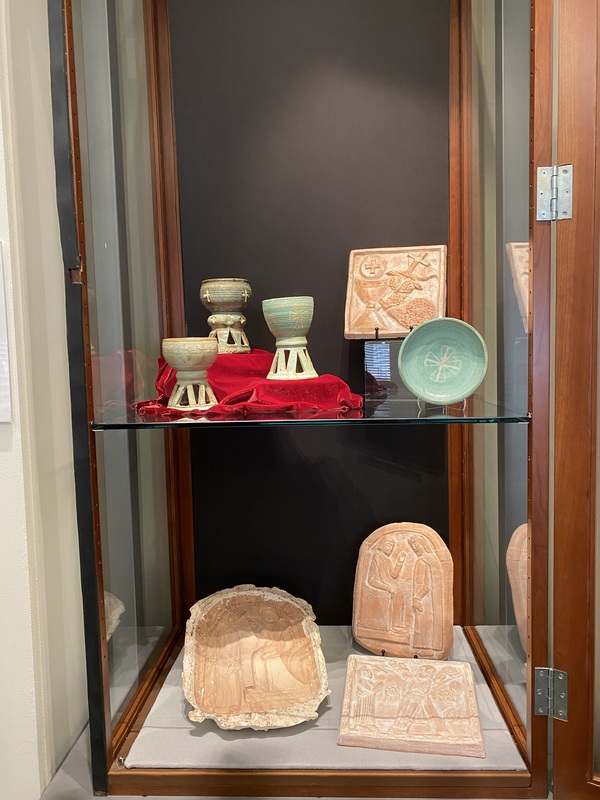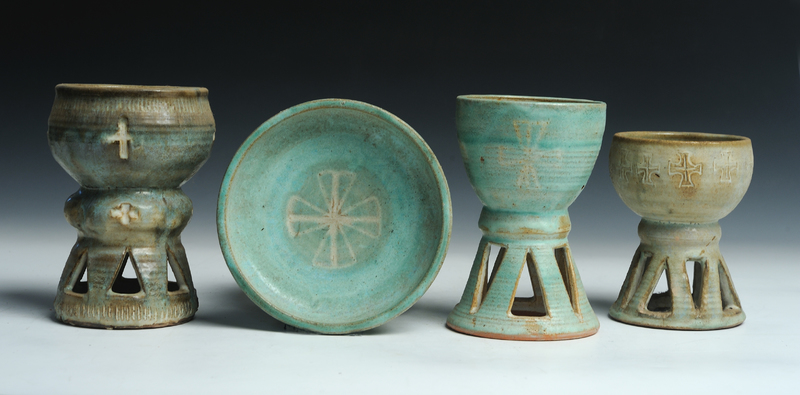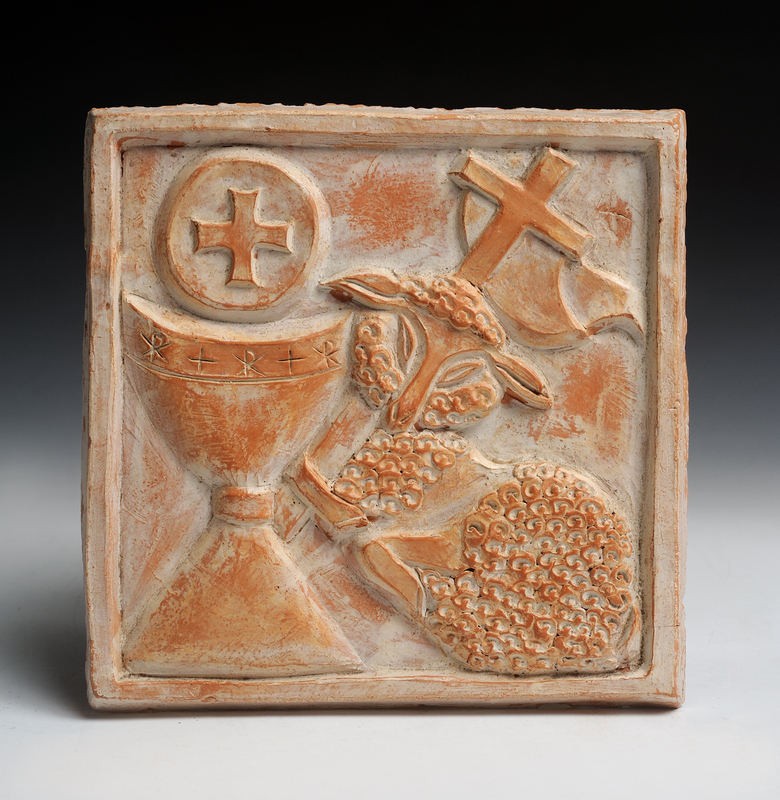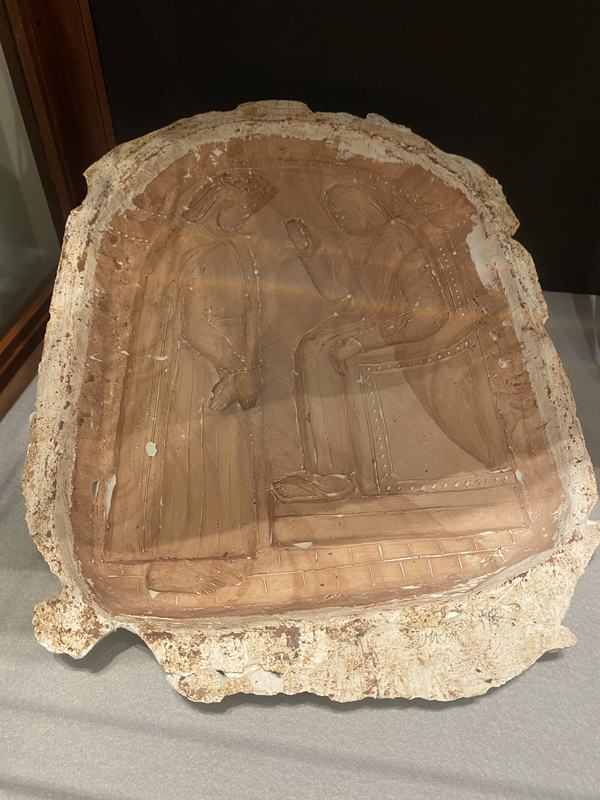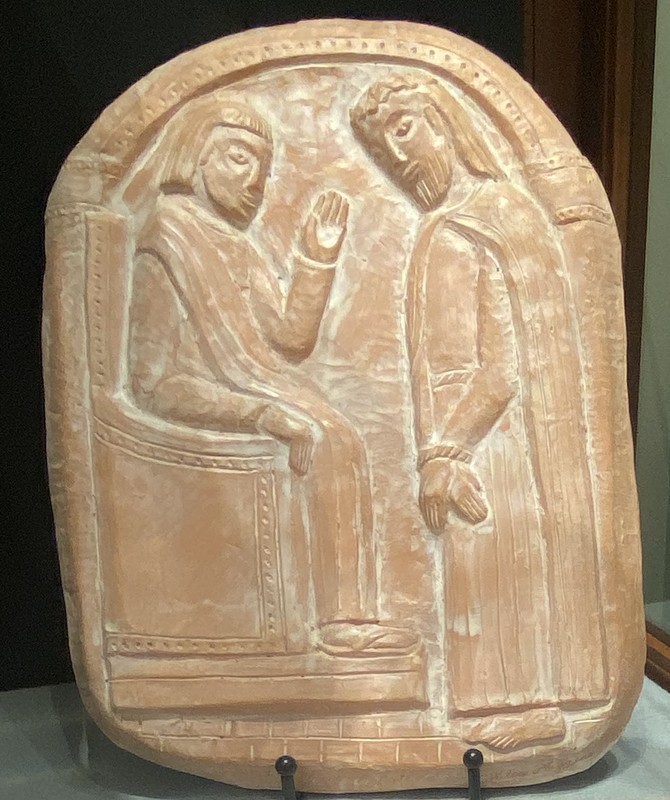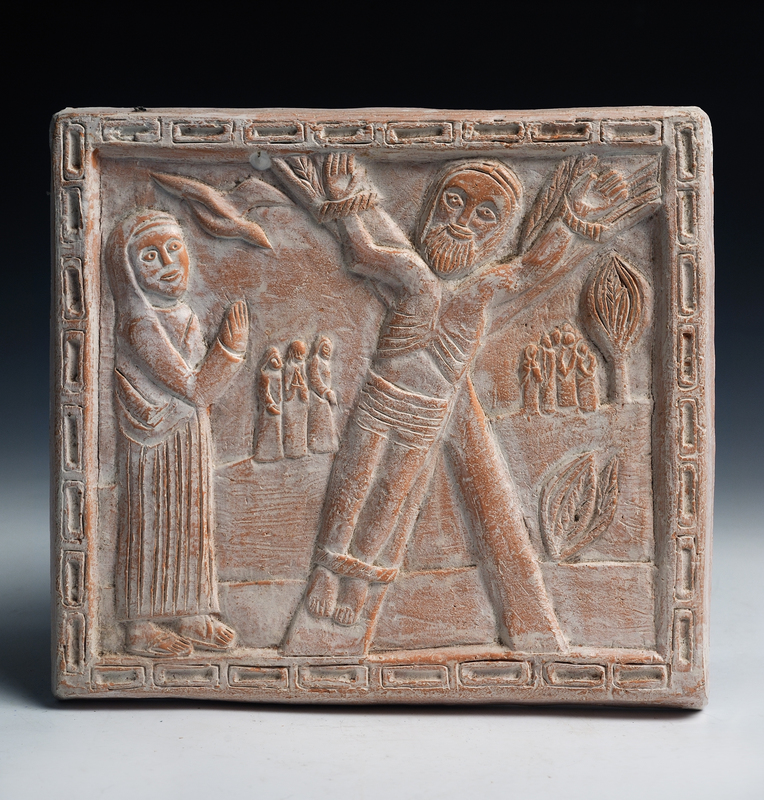Sacred Tradition
The second case holds examples of two facets of Helen Schrider Higgins’s body of work in the sacred arts. For many decades, she created functional vessels for ceremonies as well as visual works depicting significant biblical scenes from the New Testament.
The numerous tiles and relief sculptures of biblical scenes were created using a terra cotta technique that she first utilized in her MFA thesis project that is still on display outside of Regina Salve Building on campus. Stylistically, they are influenced by Byzantine and Romanesque art which is notable for a departure from classical realism and a return to symbolic and simplified forms. Terra cotta, a type of earthenware is largely unglazed clay that is porous when fired. It is affordable, durable and has been widely used throughout art history in sculpture as well as architecture. Over time, Higgins began using a white slip glaze technique where she would paint the slip glaze on the relief sculpture and then wipe out sections to create a surface effect.
The chalice is a footed cup that is intended to hold drink and may be used in religious ceremonies. The three examples of chalices and the Eucharist plate by Higgins in this case are made from glazed stone ware. They were made from combined thrown elements and hand sculpted iconographic patterns.
Another element of Higgins’s work that is introduced in this case is the use of plaster molds that allow her to produce multiples of the religious scenes that she depicted. Higgins would sculpt an original tile or relief in clay, fire the work and then produce a plaster mold from the original.
The original tile on the top level of this case represents the “Lamb of God” and the two large relief tiles on the lower level cases depict two scenes from the Passion of Christ. The scenes, Jesus and Pontius Pilate and the Crucifixion of Christ were both done in a style that echo the Romanesque period of art history.
To view any of these objects in more detail, click on the thumbnail below.
